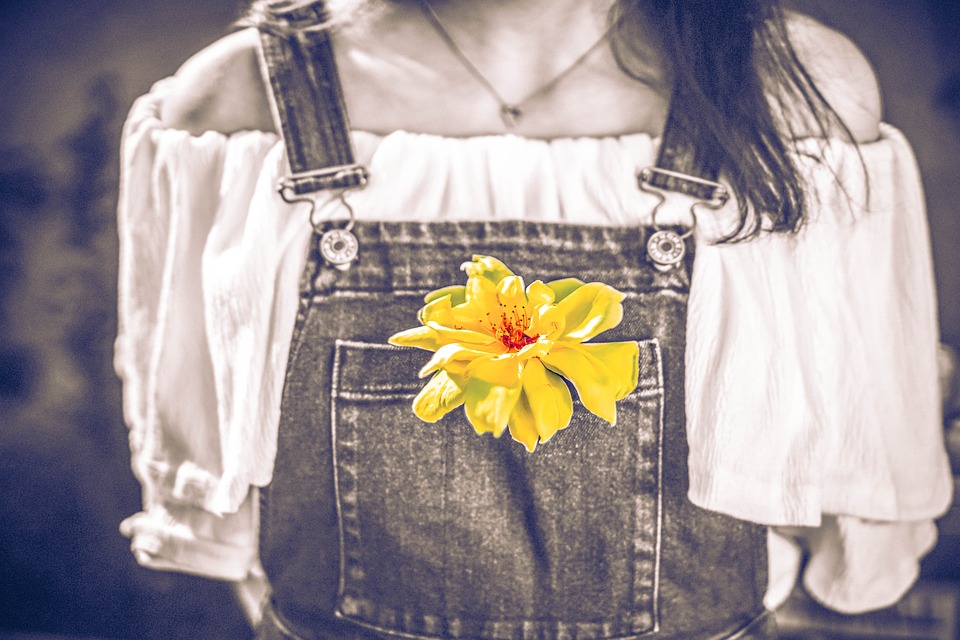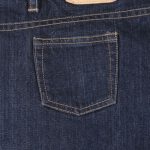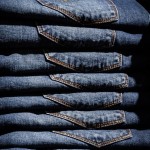Originally pioneered around the mid-19th century, denim is an age-old textile that’s become synonymous with quality fashion. Whether you realize it or not, you probably own a denim garment. In fact, most people own multiple denim garments. This textile is designed with a warp-faced cotton fabric, with the weft passing under multiple warp threads. The end result is a versatile textile that’s particularly useful for creating clothes and accessories. If you’re still on the fence about denim, here are 10 things to love about it.
#1) Conceals Stains
You don’t have to worry about stains showing on your denim clothes. Most jeans, jackets and other denim garments are designed with indigo dye. Therefore, they naturally conceal stains and blemishes. You should use caution to avoid spilling drinks or otherwise getting your denim garments dirty, but you can rest assured knowing that stains are difficult to spot on denim.
#2) Comfortable
There’s nothing that compares to the feeling of wearing a pair of high-quality denim jeans. The denim fabric is soft yet durable while contouring to the shape of your body. This alone is reason enough for many people to wear denim garments. If you work a laborious job that requires you to constantly move, wearing denim jeans will provide you the highest level of comfort possible.
#3) Strong
Denim is incredibly strong — stronger than cotton, silk, linen and many other textiles. This is important because strong fabrics like denim are less susceptible to damage than their weaker counterparts. If you have a pair of linen trousers, for example, washing them too many times may cause the stitching around the seams to come out. Denim is designed with an emphasis on strength and durability. In fact, denim jeans were originally invented working-class individuals. Therefore, denim is exceptionally strong and durable when compared to other fabrics.
#4) Environmentally Friendly
With Earth’s population now exceeding 7.4 billion people, it’s important for everyone to do their part to protect the environment. Unfortunately, not all products are environmentally friendly. Some products actually harm the environment by contributing to waste and pollution. But this isn’t an issue with denim. Because it comes from cotton, it’s a renewable resource that requires minimal work to produce and harvest. Furthermore, there are recycling companies out there that will gladly accept your old, unwanted denim garments. Although they won’t pay you for your used denim, they’ll recycle it so that it can be used for other purposes, meaning it won’t contribute to environmental waste.
#5) Easy to Wash
Not all fabrics are easy to clean and wash. Washing a silk shirt or dress in the washing machine, for example, will likely stretch and damage it. Other fabrics experience similar results when placed in the washing machine — but not denim. Whether it’s a pair of denim jeans, a jacket or any other denim garment, you can wash it in the washing machine without fear or damaging it. Just a single cycle should be more than enough to remove stains and dirt covering your jeans. Just remember to immediately dry them afterwards to prevent wrinkles from forming.
#6) Stretch Denim Is Available
If you’re not a fan of garments made of 100% denim, consider choosing stretch denim. Rather than only featuring denim in their construction, they contain a second, elastic fabric. Most stretch denim product contain spandex or polyester, for instance. Adding just 3% of either of these elastic fabrics increases the denim garment’s stretching capacity by about 15%.
#7) Resistant to Shrinkage
Denim is also resistant to shrinkage. All fabrics and garments will shrink when washed and dried, especially if they are exposed to heat. Denim, however, is less susceptible to this phenomenon than other fabrics, thanks in part to its unique manufacturing process. Most denim garments are washed during manufacturing. This causes them to shrink just a small amount, thereby preventing them from shrinking in the future. If you’re worried about your denim garments shrinking, make sure they are made of “washed” denim. While raw denim isn’t washed during manufacturing, washed denim is, so it’s less likely to shrink than its counterpart.
#8) Inexpensive
From jeans and jackets to shorts and dresses, denim garments are inexpensive. There are a few reasons for the fabric’s low price tag, one of which is the fact that cotton — the material from which denim is derived — is produced in massive quantities throughout the United States and elsewhere. Statistics show that the world’s supply of denim is growing by roughly 8% each year, while the demand for denim is growing by just 5%. As supply continues to outpace demand, basic economics should tell you that the price for denim decreases in its wake.
#9) Doesn’t Bleed Colors
Denim doesn’t bleed colors like other fabrics. After washing it just once — which is already done by the manufacturer for washed denim — the dye will set, thus preventing the garment from bleeding its colors onto other garments. You can further protect your denim garments from bleeding by washing them with 1 cup of distilled white vinegar. Vinegar works as a natural color protectant to discourage bleeding and fading. In many cases, it works even better than expensive store-bought fabric products.
#10) More Than Just Jeans
When most people think of denim, they immediately envision a pair of jeans. However, you’ll find that countless other garments are made of this versatile textile. In addition to jeans, popular denim garments include jackets, shorts, overalls, dresses and skirts. Rather than only including denim jeans in your wardrobe, experiment with a variety of denim garments. All denim garments offer the same benefits mentioned here, making them a smart investment for all fashion-conscious men and women.
After reading this, you’re probably eager to get your hands (or body) on denim. It’s one of the world’s most popular textiles. As revealed here, it’s strong, durable, comfortable, resistant to shrinkage, inexpensive and more. Just remember to choose the right style of denim for your particular needs.












